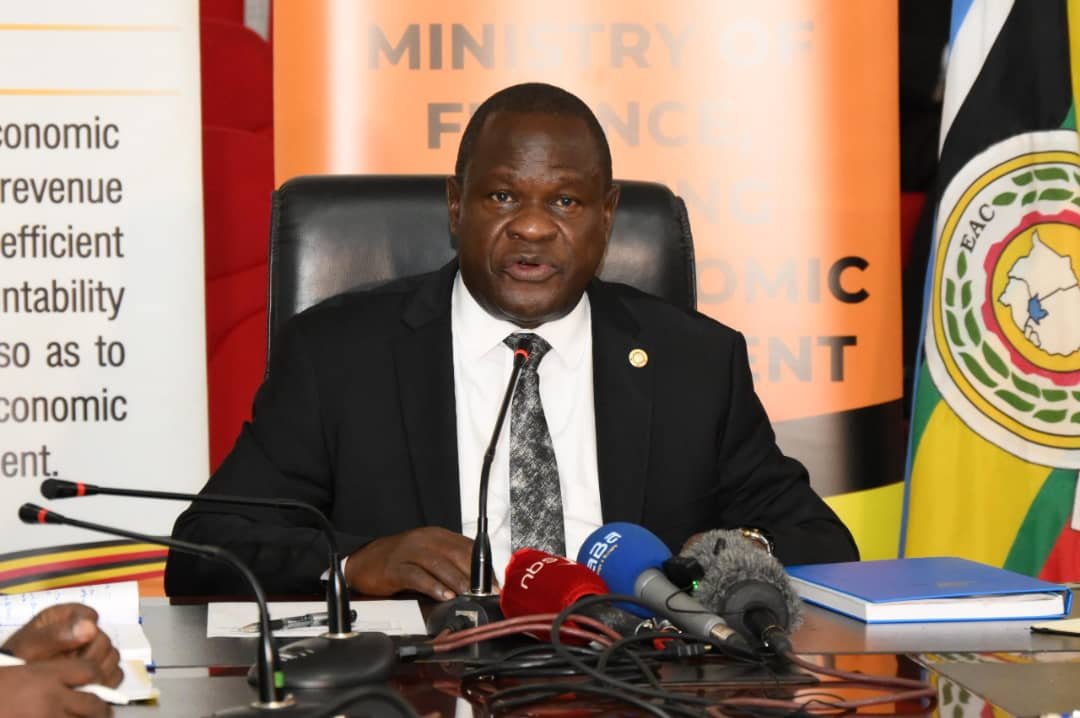
KAMPALA – Uganda’s economy demonstrated strong performance in the just-concluded financial year, with growth accelerating to 6.3% in FY2024/25, up from 6.1% the previous year, according to the latest budget performance reports.
This growth has propelled the country’s Nominal Gross Domestic Product (GDP) to Shs 227.88 trillion, a significant rise from Shs 203.71 trillion. The expansion has been largely attributed to the positive impact of the Parish Development Model (PDM), favourable weather conditions supporting agricultural output, and a robust recovery in the private sector.
Sectoral Breakdown and Future Outlook
The Services sector remains the largest contributor to the economy, accounting for 42.1% of GDP. Agriculture, a critical employer, follows at 26.1%, while Industry contributes 24.3%. The outlook remains positive, with the economy projected to grow by 7% in the current FY2025/26 and maintain growth above 7% in the medium term.
Business sentiment and activity are equally strong. Key indicators such as the Composite Index of Economic Activity (CIEA) at 179.4, the Purchasing Managers’ Index (PMI) at 54.0, and the Business Tendency Index (BTI) at 59.2 all point to sustained business confidence and expansion.
Inflation and Exchange Rate
Inflation has remained relatively contained, averaging 3.8% in the first quarter of FY2025/26. However, it saw a slight uptick to 4.0% in September 2025, primarily driven by a jump in food inflation to 7.4% from 3.0% in August. On a positive note, the Ugandan Shilling has strengthened, trading at Shs 3,497 per US Dollar compared to Shs 3,573 previously.
Trade and Remittances Show Positive Trends
The external sector performance has been impressive. Exports surged by 55.4% to USD 3.48 billion in the fourth quarter of last financial year. Although imports also grew by 38.5% to USD 3.98 billion, the trade deficit narrowed by 21.1% to USD 499.5 million. Furthermore, diaspora remittances provided a substantial boost to foreign inflows, reaching USD 1.57 billion in FY2024/25.
Budget Execution and Key Allocations
The government is actively implementing the approved Shs 72.38 trillion budget for FY2025/26. To date, a total of Shs 38.61 trillion (53.4%) has been released, covering the first two quarters. The second-quarter releases included Shs 20.18 trillion for Q1 and Shs 18.43 trillion for Q2.
Key statutory allocations for the second quarter were as follows:
· Debt Servicing and Treasury Operations: Shs 7.07 trillion
· Public Sector Wages: Shs 2.132 trillion
· Pensions and Gratuity: Shs 339 billion
· Parliament: Shs 223.64 billion
· Judiciary: Shs 64.06 billion
Strategic Investments for Growth
Significant funds have been directed towards the government’s ten-fold growth strategy, focusing on value addition and industrial growth. Key allocations include:
· Agro-Industrialisation: Shs 320 billion
· Science, Technology & Innovation: Shs 124.25 billion
· Tourism Development: Shs 53.65 billion
· Mineral Development (Oil & Gas): Shs 16.64 billion
Sector-Specific Funding
Other critical sectors received substantial funding in the second quarter:
· Infrastructure: Works & Transport (Shs 1.703 trillion), Energy (Shs 361.55 billion), and the Greater Kampala Metropolitan Area urban development project (Shs 292 billion). Notably, 82% of road development funds have already been released.
· Security: Defence (Shs 642.85 billion), Police (Shs 161.62 billion), and Prisons (Shs 89.67 billion). The Electoral Commission also received Shs 52.71 billion as part of the full release for its electoral roadmap activities.
· Human Capital Development: Health (Shs 471 billion), Education (Shs 172.21 billion), Public Universities (Shs 144.62 billion), and Sports (Shs 236.77 billion).
· Local Governments: Shs 390.78 billion, with Shs 252.44 billion earmarked for capital development.
Revenue Mobilisation and Fiscal Discipline
To support the national budget, revenue-generating agencies received operational funds, including Uganda Revenue Authority (Shs 114.90 billion), Uganda Immigration (Shs 61.42 billion), and Uganda Registration Services Bureau (Shs 8.45 billion).
The government has also emphasized fiscal discipline, issuing key directives to all accounting officers. These include paying wages and pensions by the 28th of every month, settling supplier invoices promptly to avoid accumulating arrears, and ensuring all government contracts are denominated in Ugandan Shillings only. A further Shs 187 billion has been allocated to clear pending domestic arrears, subject to validation by the Auditor General.
This comprehensive budget execution framework underscores the government’s commitment to driving economic growth, maintaining fiscal stability, and funding strategic national priorities.









